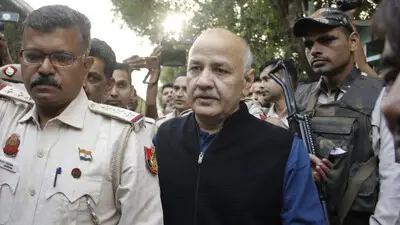Recommended Stories
Mumbai: As many as 280 girls were renamed in Satara district today as part of the administration`s campaign to end the practice in rural Maharashtra to name a girl child as `Nakusha` or unwanted. "The government identified girls named `Nakusha` in Satara district and organised a renaming ceremony," District Collector N Ramaswami told PTI."Some girls were renamed Aishwarya, while others got names like Pooja, Neeta, Asha. The new names were chosen by the family, either the parents or in some cases, by the grown up girls themselves," he said. The function was organised by the Zilla Parishad of the Western Maharashtra district. NCP MP Supriya Sule was among those present. "We identified 280 such names (Nakusha) from school records," Ramaswami added."Zilla Parishad officials had surveyed the district and decided on the renaming after speaking to the parents. The officials felt this was a small step towards changing the mindset in the rural areas," another official said. In some parts of rural Maharashtra, if a girl is born when the parents wanted a boy, she is named `Nakusha`. The ZP undertook a survey and identified such girls, ranging from infants to 16 years of age."Typically, if a rural couple has one or two girls, they dislike it when their third child also turns out to be a girl. They then name her `Nakusha`. Other derogatory names given to girls are `Dagadi` and `Dhondi` which means stone," the official said. The ZP is conducting the campaign in association with `Lek Vachva` (Save The Girl Child) project, which seeks to save the female foetus from illegal sex determination.
While Patan taluka had the highest number of Nakushas (92), Koregoan and Wai talukas did not have any. The other Nakushas were located in Khandala, Phaltan, Khatav, Maan, Karad, Mahabaleshwar and Jawali areas of the district. "The name `Nakusha` is discriminatory towards women. It is a reflection of the patriarchal mindset of society and indicates the anger of the parents on the birth of a girl child," NCP MLC Vinayak Mete, who is conducting a campaign against female foeticide in his native Beed district, said."Some of these girls say they feel ashamed whenever their name is called out in school or social and family gatherings," he added.












